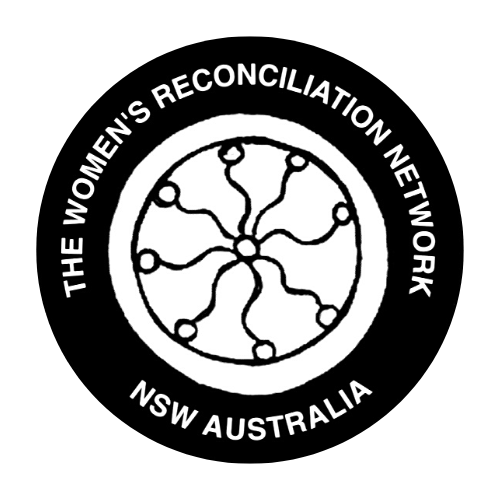Most people have no experience with Aboriginal people except how they are perceived on television, what they hear about court cases, what we hear on the news…
Enid started her journey into working with the WRN when she began working as a teacher in schools with high migrant populations. Here, Enid met Robin Hutchinson, where they formed a bond over their passion for reconciliation and the promotion of human rights for disadvantaged individuals. At the time, Enid had minimal experience working with Aboriginal children in her teaching career. Whilst teaching, she had the opportunity to travel much of Central Australia and went on treks organised by Aboriginal people. During this time, she was becoming more and more interested in the shocking disparities in the treatment for aboriginal people in Australia and became more aware of the importance of reconciliation.
In 1996, Enid, Elaine and John worked together on Footsteps. This newsletter informed all the local groups under the umbrella of the Council for Reconciliation about activities available for Aboriginal people and activities that promote reconciliation in other local groups. Through this newsletter, she met other future WRN members and eventually had so much on her plate, that she turned her commitments more towards WRN and moved away from Footsteps.
Enid strongly feels that the majority of people are unaware of the difficulties of the average Indigenous person. Most people have no experience with Aboriginal people except how they are perceived on television, what they hear about court cases, what we hear on the news about drunken Aboriginal people being picked up and taken to dry houses. She feels that there is a general ignorance and a general lack of empathy and concern.
Enid sees that the perception regarding reconciliation in Australia is undoubtedly improving and that there’s no doubt about that. She feels that as time goes by, there will be more and more highly educated Indigenous people who work within their communities which will hopefully improve things for their people. Be that as it may, Enid is discouraged by current government efforts to work collaboratively with Aboriginal people. For example, she was disheartened at the recent 2020 budget which sparsely mentioned funding for aboriginal communities.
In the future, Enid would like to see Aboriginal people have more opportunities to become better educated. Enid would hope that through this, we can begin to remove the barriers that face Indigenous people and promote their culture, intelligence and value in society.
